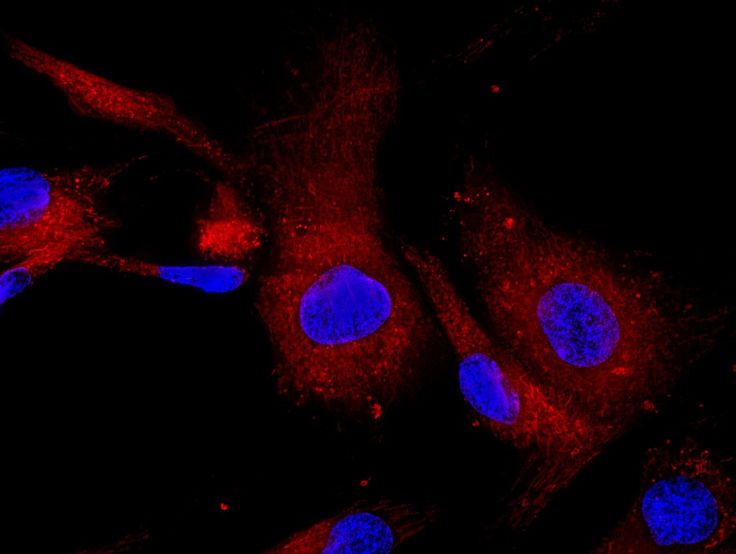
Mesenchymal stem cells, commonly known as MSCs, are multipotent stromal cells that can differentiate into a variety of cell types, including osteoblasts (bone cells), chondrocytes (cartilage cells) and adipocytes (fat cells). MSCs were first discovered in the 1970s and since then extensive research has been carried out to understand their properties and potential uses in regenerative medicine. These cells can be obtained from various tissues like bone marrow, adipose tissue, dermis, umbilical cord and amniotic fluid. Due to their accessibility and differentiation capacity, MSCs have emerged as a promising tool for tissue engineering and cell-based therapies. Sources and Isolation of MSCs Bone marrow has been the most widely used source of mesenchymal stem cells for clinical applications and research. Bone marrow aspirates contain a small number of MSCs, typically 0.001-0.01% of nucleated cells. MSCs can be easily isolated from bone marrow by density gradient centrifugation followed by plastic adherence, which enriches the culture for MSCs. Adipose tissue is another abundant and accessible source of MSCs, commonly known as adipose-derived stem cells (ADSCs). ADSCs have similar phenotype and differentiation potential as bone marrow MSCs but are more abundant, approximately 500 times more than in bone marrow. Umbilical cord, amniotic fluid and placenta also contain MSCs which have certain advantages over bone marrow and adipose tissue derived MSCs. Overall, MSCs can be isolated from various sources with minimal invasiveness using well-established protocols. Cell Surface Markers and Trophic Functions of MSCs MSCs are plastic-adherent and fibroblast-like cells that lack expression of hematopoietic markers. The minimal criteria to define human Mesenchymal Stem Cells includes absence of CD45, CD34, CD19 or CD79α and presence of CD105, CD73 and CD90 cell surface markers. MSCs secrete a variety of cytokines, growth factors and extracellular vesicles that exertparacrine effects. Some of the key trophic factors secreted by MSCs include vascular endothelial growth factor (VEGF), hepatocyte growth factor (HGF), transforming growth factor beta 1 (TGF-β1) and extracellular matrix proteins. Through their trophic functions, MSCs can reduce inflammation, stimulate angiogenesis, prevent apoptosis and recruit endogenous stem cells. This makes MSCs an ideal candidate for tissue regeneration through their immunomodulatory and wound healing properties. Multilineage Differentiation Potential of MSCs A defining property of mesenchymal stem cells is their capability to differentiate into various mesodermal cell types under appropriate culture conditions. When treated with osteogenic supplements like dexamethasone, ascorbic acid and beta glycerophosphate, MSCs undergo osteogenic differentiation as revealed by mineralization and expression of osteoblast markers. Similarly, treatment with growth factors like TGF-β results in chondrogenic differentiation evidenced by glycosaminoglycan production and type II collagen expression. Adipogenic differentiation is stimulated by isobutylmethylxanthine, indomethacin, insulin and dexamethasone supplementation and is identified by accumulation of lipid vacuoles that take up oil red O stain. Recently, MSCs have also shown potential to differentiate into cells of endodermal and ectodermal origin indicating their pluripotent differentiation capability under suitable conditions. Therapeutic Applications of MSCs Due to their accessibility, expansion and multilineage differentiation abilities, mesenchymal stem cells hold great potential as a cellular therapy for various degenerative diseases. Bone and cartilage defects: MSC-based therapies are promising approach for treatment of non-union fractures and cartilage lesions. Bone marrow concentrate containing MSCs has been used clinically for long bone and other fractures with good healing outcomes. Cartilage lesions have been treated with chondrogenic differentiation of MSCs on scaffolds. Neurological disorders: MSCs have shown promising results for treatment of spinal cord injury in animal models through reduction of glial scar, promotion of axonal regeneration andmyelination. Clinical trials are ongoing for conditions like cerebral palsy, multiple sclerosis,stroke and traumatic brain injury. Cardiovascular diseases: Intramyocardial injection of MSCs has been shown to improve ventricular function and reduce infarct size in animal models of myocardial infarction. Early phase clinical trials demonstrated safety and efficacy. Other applications: MSCs are being investigated for wound healing, liver diseases, diabetes, acute kidney injury and lung diseases based on their trophic, immunomodulatory and regenerative properties. Overall, mesenchymal stem cells hold immense therapeutic potential due to their safety profile and accessibility from various sources. Challenges and Future Prospects While MSC-based therapies hold vast potential, some challenges need to be addressed before they can be translated into effective clinical treatments. Standardization of isolation, expansion and characterization protocols across different sources is required to ensure reproducibility. Understanding the molecular and genetic mechanisms regulating MSC differentiation fate decisions is pivotal for optimizing tissue regeneration. Another concern is the possibility of MSC tumorogenicity, especially upon genetic manipulation. Long-term effects and fate of transplanted MSCs in vivo also need comprehensive evaluation. Considering their robust immunomodulatory properties, interactions of allogeneic MSCs with host immune system during transplantation require evaluation. Designing appropriate scaffolds, carriers and delivery methods is crucial for homing mesenchymal stem cells to target sites and achieving desired therapeutic effects. With advancements in directed differentiation, biomaterials and imaging technologies, many of these challenges can be addressed in near future. With continuing research efforts, MSC-based products are expected to revolutionize regenerative medicine and transform cell-based therapeutics in the coming decade. Mesenchymal stem cells possess immense clinical potential due to their abundant sources, immunomodulatory and regenerative properties. Despite current challenges, extensive research over last two decades has established MSCs as a promising tool for cell-based therapeutics and regenerative medicine. With ongoing optimization and standardization efforts as well as mechanistic insights, MSC-based products can become practical therapeutic solutions for various degenerative diseases in not-so-distant future.
Discover the Report for More Insights, Tailored to Your Language.
French German Italian Russian Japanese Chinese Korean Portuguese
Money Singh is a seasoned content writer with over four years of experience in the market research sector. Her expertise spans various industries, including food and beverages, biotechnology, chemical and materials, defense and aerospace, consumer goods, etc. (https://www.linkedin.com/in/money-singh-590844163)

































